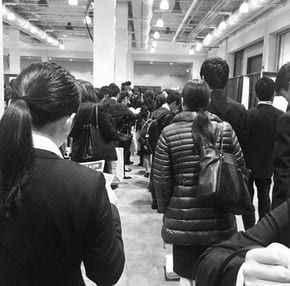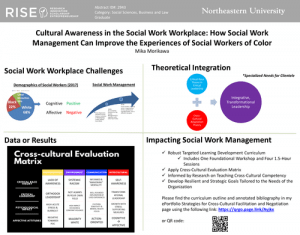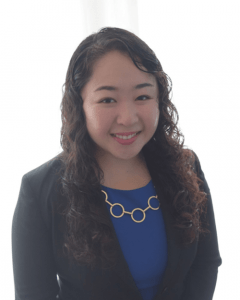Finding My Place in the Cross-Cultural Communication Field
It was three years ago that my career gained what I thought was to be my launch into the global market. After graduating from college and achieving my dream job of working at a huge corporation in Tokyo, the unexpected occurred. Within six months, I quit and moved back to my home country, the USA.

Mika wearing a yukata, a Japanese summer kimono, during study abroad in Japan.
Deciding to leave so quickly shocked not only my community, but also myself. I had spent four years learning about Japanese language and culture. Having studied abroad, researched, and interned in Japan. I had braced myself for expected sexism in the workplace, strong drinking culture, and even power harassment. However, the one thing that was I had not prepared for was my own lack of cultural agility.
Despite knowing what the Japanese perspective might be, I found myself defining right and wrong. I would often deem Japanese corporate culture to be unhealthy for its collective mindset, in contrast to my valuing individuality and freedom as someone raised in the USA. When I ended up leaving Japan to pursue a career in cross-cultural communication, I came away from the experience subconsciously wanting to fix Japan. I had a vision and a strategic plan; next steps were to gain the tools.
How Northeastern Changed Me
Through my college research, I was drawn to the College of Professional Studies Cross-cultural Communication (CCC) program for its many benefits. Plus, the Faculty Lead, Professor Patty Goodman, was open to connecting with candidates prior to embarking on the educational commitment. I could begin with the graduate certificate, then choose to pursue a master’s degree. Additionally, the course maps offered two different tracks allowing students to select from an array of courses that fit their professional interests for growth.

Boston Career Forum, 2019
Ultimately, the CCC program ended up holding value beyond the benefits for me – it was and continues to be life-changing growth journey. The courses and Professor Patty helped me to become aware of my philosophical core: cross-cultural communication. CCC encompasses not only national boundaries, but age, race, ethnicity, economic status, industries, organizations, roles, and more. In order to communicate across these groups, it is necessary to employ skills that can be taught and refined. I gained skills through the Cultural Intelligence (CQ) assessment and generating a cultural audit for that Japanese industry that I was previously seeking to fix.
Now, I recognize how these skills can lead directly to high performance, organizational efficiency, and even improve the lives of others. However, this must not come from the mindset of fixing a culture. Cross-cultural communicators provide skills on how to navigate the intercultural self in the context of different cultures. Most importantly, exercising compassion toward yourself and others is paramount. I was transformed through this learning. After my experience in Japan, I wavered (and still do) about whether I am the right person to exist in this space. My Northeastern community has given me the support that inspires me to push forward.
RISE 2020

Mika’s RISE Poster
With the encouragement of my dedicated community, friends, peers, and faculty, I felt led to explore a more localized social justice cross-cultural field. I was pleased to be recommended and present my project on Cultural Awareness in the Social Work Workplace at the Research, Innovation, and Scholarship Expo (RISE) 2020 conference, CulturalAwarenessSW_MM. I had taken a different path in from my previous research in a Japanese corporate field. I became passionate about social justice after hearing about lived experiences of marginalized social workers of color. Hence, my inspiration for the project came from shared stories from my connection in the Boston area. With the grounding that Northeastern taught me, I wanted to offer a helpful cross-cultural development tool, despite social work being outside of my field. After researching the social workers’ demographics, management, and history, I decided to create a robust, customizable curriculum. This educational content is specifically geared towards creating a concrete action plan to improve the experiences of social workers of color starting with social work management.
Unexpectedly, I saw my name as an award winner. I was thrilled and honored to receive the 2020 RISE Outstanding Research Award in Social Sciences, Business, and Law for my work. Winning this award marked a defining moment in my career as a cross-cultural communicator! I feel more certain than ever that my purpose is to hear the lived experiences in my community and contribute an intercultural perspective providing recommendations for facing the problems before them.

Author: Mika Morikawa CPS’21
Program: MS Corporate and Organizational Communication
Concentration: Cross-Cultural Communication Concentration